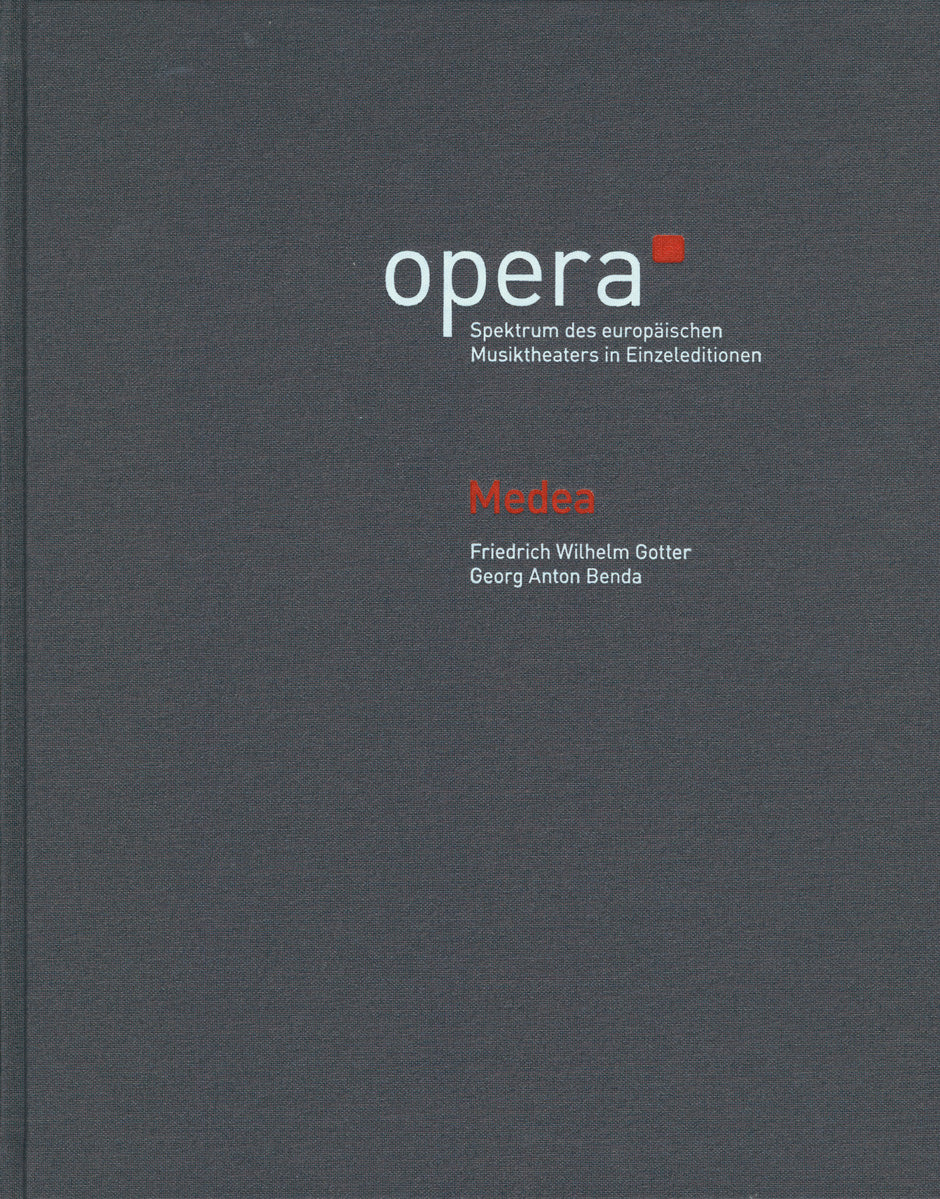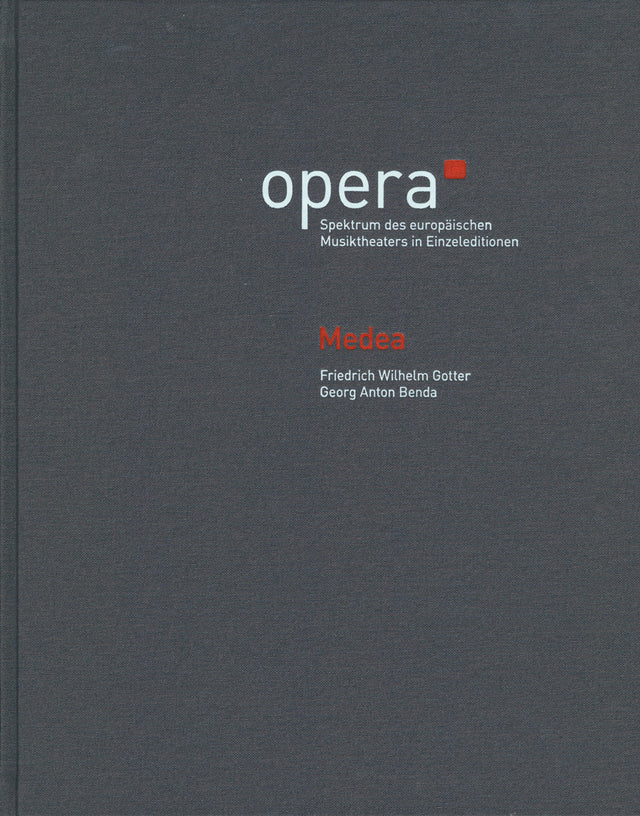Benda: Medea
In stock and typically ships within 1 business day.
- Composer: Jiří Antonín (Georg Anton) Benda (1722-1795)
- Format: Full Score
- Instrumentation: Orchestra
- Work: Medea
- Binding: Hardcover
- Work Language: German
- ISMN:
- Size: 10.4 x 13.0 inches
- Pages: 122
- Urtext / Critical Edition
Description
Georg Anton Benda‘s melodrama "Medea" (1775) was one of the most successful German musical theatre works of the late 18th century. with a libretto by Friedrich Wilhelm Gotter, the work soon became a great influence within the melodrama genre. for several decades, it was performed all over central Europe, developing an impressive reception history. Between 1775 and about 1790, the melodrama was considered an extremely popular (albeit controversial) part of musical theatre, in particular in German-speaking regions. Consequently, Benda's "Medea" was at the center of many heated debates.
Unlike opera, the melodrama does not present the libretto in sung form, but rather, the text is spoken and combined with orchestral music and scenes. The traditional opera forms (aria, recitative, ensemble, chorus) are dissolved and replaced by a new interplay of music, speech, and scenes. A focus on a single protagonist and the quick, delicate alternation between spoken text and music allows for the development of conflicting and contradictory psychological profiles with a heightened intensity within the melodrama.
Near the end of his life, Benda revised the work significantly, drawing from his experience of real performances and their effectiveness. The changes leading to the new version of his "Medea" music were quite extensive, affecting almost every single measure: numerous details of the part writing (tempi, voice leading, rhythms, accompanying figures etc.) were revised, the instrumentation was changed, middle voices were led in a more lively manner, and the music as a whole was shortened and effectively compressed. The composer regarded the latter, modified "Medea" as the authorized version of the work. The premiere took place in 1784 in Mannheim, however, the altered work received little attention since then and has become tangible again for the first time with the OPERA Edition. All previous editions of the work – and along with them, all previous recordings – are based on the earlier version of 1775.
The third volume of the OPERA series "Medea" contains a linen-bound book and the edirom on a USB stick in credit card format. The number of users permitted to simultaneously use the digital content of the edition is not limited.
Publishers use a lot of words to describe what they sell, and we know it can be confusing. We've tried to be as clear as possible to make sure you get exactly what you are looking for. Below are descriptions of the terms that we use to describe the various formats that music often comes in.
Choral Score
A score for vocalists that only contains the vocal lines. The instrumental parts are not there for reference. Generally, cheaper than a vocal score and requires multiple copies for purchase.
Facsimile
Reproductions of the original hand-written scores from the composer.
Full Score
For ensemble music, this indicates that the edition contains all parts on a single system (there are not separate parts for each player). In larger ensembles, this is for the conductor.
Hardcover
Hardbound. Generally either linen-covered or half-leather.
Orchestral Parts
Similar to a wind set, this is a collection of parts. In the case of strings, the numbers listed are the number of copies included, though generally these are available individually (often with minimum quantities required).
Paperback
When publishers offer multiple bindings (e.g. hardcover) or study scores, this is the "standard" version. If you're planning to play the music, this is probably what you want.
Performance / Playing Score
A score of the music containing all parts on one system, intended for players to share. There are not separate parts for each player.
Set of Parts
For ensemble music, this indicates that there are separate individual parts for each player.
Solo Part with Piano Reduction
For solo pieces with orchestra, this is a version that contains a piano reduction of the orchestra parts. For piano pieces, two copies are typically needed for performance.
Study Score
A small (think choral size) copy of the complete score meant for studying, and not playing. They make great add-ons when learning concertos and small chamber works.
Vocal Score
A score prepared for vocalists that includes the piano/organ part or a reduction of the instrumental parts.
Wind Set
For orchestral music, this is a collection of wind and percussion parts. The specific quantities of each instrument are notated.
With Audio
In addition to the printed music, the edition contains recordings of the pieces. This may be an included CD, or access to files on the internet.
With / Without Fingering (Markings)
Some publishers prepare two copies - a pure Urtext edition that includes no fingering (or bowing) suggestions and a lightly edited version that includes a minimal number of editorial markings.



